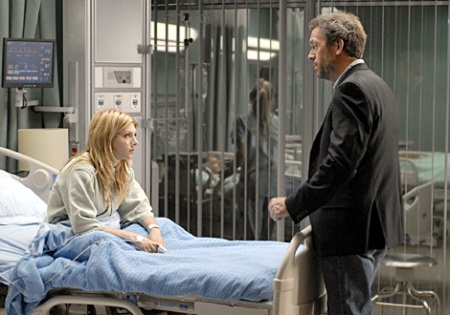Since I have a serious Dr. Drew Pinsky addiction (irony intended), I was really sad when his podcast was cancelled. Thankfully, Celebrity Rehab 2 and Sober House came out shortly after the podcast ended, so I was able to watch those repeatedly for awhile. When VH1 stopped running CR2, I read his books. Now, having exhausted all of those Dr. Drew resources, I am listening to Loveline. This kills me a little bit, for several reasons:
- It’s called Loveline
- Half of it is sex talk
- I have to pay $5 a month for it!
Still… It’s Dr. Drew, so I have to do it. There are calls about addictions and psychological issues, and listening to his responses to those questions is worth my $5.
Dr. Drew had a particularly great quote today:
“It’s not what you’re doing, it’s what you’re missing – and you deserve better.”
The quote was not in relation to alcoholism or eating disorders, but it really hit home with me. Yes, you need to get better because it’s important to take care of yourself, people care about you, you should care about you, you want to be healthy, it’s pathological, etc. But also, when you are wrapped up in the ED you are missing life. Maybe that’s semi-intentional; maybe you’re avoiding life. You might think you’re just coping with life in an unhealthy manner, but you really are missing it.
You’re missing:
- Close relationships with friends
- Many normal social situations (getting pizza, going out for lunch, meeting for a drink, getting ice cream for no reason)
- Good experiences (as well as bad experiences) that shape you as a person
I can think of a lot of things that I “missed”
- Close relationships with HS friends
- Trying anything new (for most of my life)
- Getting ice cream with friends
- A lot of summer cookouts
- Trips I wouldn’t go on because there would be too much food or b/c I was depressed & wanted to stay home
(okay, this is a depressing list so I’m going to stop here)
I think that eating disorders are as much about avoiding life as they are hurting yourself. First there is all the time that you spend wrapped up in the disorder. You’re isolating, avoiding events with food, and spending 90% of your day thinking about food and weight. You have no idea what is going on around you. And then there’s treatment, which takes up even MORE time… because along with the continuing disordered behavior (it’s not going to go away overnight), you now also have a dietitian, a therapist, a doctor, a psychiatrist (and this is assuming that you don’t really put your life on pause to go to a residential or partial hospitalization program). You are spending your free time in treatment. And I don’t know about you, but when I’m working on tough stuff in therapy, I have a harder time dealing with the rest of life. When I’m upset about whatever my therapist said two hours ago, the last thing I want to deal with is a presentation that’s due tomorrow. So yes, even in recovery, you are avoiding / escaping / missing (whatever you want to call it) your life.
It’s kind of ironic when you think about it. You spend so much time in therapy trying to change behaviors, discussing why you are coping with life via your ED, identifying unhealthy aspects of your career and relationships, etc. However… how much time do you spend talking about what you’re missing?
And for awhile, this is the point. Maybe something in your life is not okay. Maybe there is too much on your plate, maybe you are in a bad relationship, maybe you do need to change your job, maybe you are killing yourself trying to please everyone else in your life–whatever. One of the best things about residential (I think) is that you don’t have to deal with the real world while you’re in treatment. I can just focus on myself and what I need to be doing without the constant stress and anxiety of bills, relationships, responsibilities, work, money, and the list goes on.
However, I am not new to treatment, and neither are several of my friends. And while I do worry about their health and their symptoms, what really makes me sad is what the ED takes away from them. For one friend, it takes away time and energy that she would rather be spending with her children. For another, it limits her career because work has to be planned around the ED and ED treatment. Another friend has to put relationships, summer plans, and a lot of the life that she has created in the past year on the side right now to get more intense help.
All of these friends are making the right choices to work on the eating disorder and to get the help that they need! Absolutely. Friend #1 can’t take care of her family if she isn’t taking care of herself, Friend #2 won’t be able to put the energy and concentration into the job that career that she really wants until she is healthier, and Friend #3 won’t be able to maintain that life if she doesn’t do intensive treatment. My point is, though, that what saddens me the most about these friends is not their concerning ED symptoms, but all the things that they are missing out on in their lives. They’re such wonderful people and are meant to do so much more in the world than they can with this eating disorder. They deserve so much more out of life than this eating disorder, and that’s why I hope they can get better.


